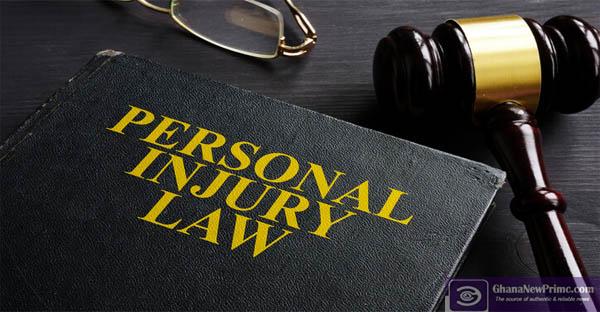Navigating the Complex World of Insurance: Understanding, Types, and Importance
Insurance plays a vital role in modern society, offering protection and peace of mind against various risks and uncertainties.
From safeguarding assets to providing financial security, insurance serves as a critical tool for individuals, businesses, and communities alike. In this comprehensive exploration, we delve into the multifaceted realm of insurance, examining its intricacies, types, and overarching importance in today’s dynamic landscape.
Understanding Insurance:
At its core, insurance is a contract between an individual or entity (the policyholder) and an insurance company (the insurer).
The policyholder pays a premium, typically on a regular basis, in exchange for the insurer’s promise to provide financial compensation or coverage for specified losses, damages, or liabilities outlined in the policy. This arrangement allows individuals and businesses to transfer the risk of potential losses to the insurer, thus mitigating financial uncertainties.
Types of Insurance:
Insurance encompasses a diverse array of coverage options tailored to address various risks and needs. Some of the most common types of insurance include:
Life Insurance:
Designed to provide financial protection to beneficiaries in the event of the policyholder’s death, life insurance policies come in several forms, including term life, whole life, and universal life insurance.
Health Insurance:
Health insurance covers medical expenses and healthcare services, offering individuals access to quality healthcare while minimizing out-of-pocket costs. This type of insurance can include coverage for doctor visits, hospitalization, prescription drugs, and preventive care.
Auto Insurance:
Mandatory in many jurisdictions, auto insurance protects drivers against financial losses resulting from accidents, theft, or damage to their vehicles. It typically includes liability coverage, collision coverage, and comprehensive coverage.
Homeowners Insurance:
Homeowners insurance safeguards homes and personal belongings against risks such as fire, theft, vandalism, and natural disasters. Additionally, it provides liability coverage in case someone is injured on the property.
Property Insurance:
Property insurance extends beyond homes to cover commercial properties, rental properties, and other real estate assets. It offers protection against damage or loss caused by perils such as fire, storms, theft, and vandalism.
Business Insurance:
Business insurance encompasses a wide range of coverage options tailored to address the unique risks faced by businesses, including general liability insurance, professional liability insurance, property insurance, and workers’ compensation insurance.
Join Our Telegram Channel HERE
Travel Insurance:
Travel insurance provides coverage for unexpected events that may occur while traveling, such as trip cancellations, medical emergencies, lost luggage, and travel delays.
Liability Insurance:
Liability insurance protects individuals and businesses from legal liabilities arising from bodily injury or property damage caused to others. It includes various types of liability coverage, such as general liability, professional liability, and product liability insurance.
Importance of Insurance:
The importance of insurance cannot be overstated, as it serves as a cornerstone of financial stability and risk management in both personal and business contexts. Consider the following key reasons why insurance is essential:
Financial Protection:
Insurance provides a safety net against unexpected financial losses, helping individuals and businesses recover from setbacks without facing crippling financial burdens. Whether it’s replacing a totaled car, rebuilding a damaged home, or covering medical expenses, insurance ensures that policyholders are not left financially vulnerable in times of need.
Risk Management:
By transferring risk to insurance companies, policyholders can effectively manage and mitigate potential risks and uncertainties associated with life, health, property, and business operations. Insurance allows individuals and businesses to focus on their core activities without being unduly preoccupied with the fear of financial ruin.
Peace of Mind:
Knowing that they are protected against unforeseen circumstances provides individuals and businesses with peace of mind and confidence in their financial future. Whether it’s the reassurance of having health insurance coverage or the peace of mind of knowing that their property is insured, insurance policyholders can navigate life’s uncertainties with greater ease and security.
Legal Compliance:
In many cases, insurance is not only advisable but also legally mandated. For example, auto insurance is required by law in most states to ensure that drivers have financial responsibility for potential accidents and injuries. Similarly, businesses may be required to carry certain types of insurance, such as workers’ compensation insurance, to comply with legal requirements and protect employees.
Promotes Economic Stability:
Insurance plays a crucial role in promoting economic stability and resilience by spreading risks across a large pool of policyholders. By pooling premiums and claims, insurers can effectively manage risk and ensure that catastrophic events or losses do not destabilize the economy or financial markets.
Encourages Responsible Behavior:
Insurance encourages individuals and businesses to adopt responsible behaviors and risk-mitigation strategies. For example, safe driving habits may lead to lower auto insurance premiums, while implementing safety measures in a business environment can result in reduced liability risks and insurance costs.
Challenges and Considerations:
While insurance offers numerous benefits, it is not without its challenges and considerations. Some key factors to keep in mind include:
Cost:
Insurance premiums can vary significantly depending on factors such as coverage limits, deductibles, risk factors, and the insurer’s underwriting criteria. Balancing coverage needs with affordability is essential to ensure adequate protection without overextending financial resources.
Coverage Gaps:
It’s crucial for policyholders to carefully review their insurance policies to identify any potential coverage gaps or exclusions. Understanding what is and isn’t covered by insurance can help individuals and businesses make informed decisions and avoid unpleasant surprises in the event of a claim.
Claims Process:
Navigating the insurance claims process can be complex and time-consuming, particularly in the aftermath of a significant loss or disaster. Policyholders should familiarize themselves with the claims procedures and requirements of their insurance policies to expedite the claims process and maximize their chances of a successful outcome.
Policy Reviews:
Insurance needs can evolve over time due to changes in personal circumstances, business operations, or regulatory requirements. Regularly reviewing and reassessing insurance coverage ensures that policyholders remain adequately protected and can adjust their coverage as needed to address new risks or priorities.
Conclusion:
In conclusion, insurance serves as a cornerstone of financial stability, risk management, and peace of mind for individuals, businesses, and communities worldwide. From protecting against unforeseen losses to promoting economic stability and resilience, insurance plays a vital role in safeguarding assets, mitigating risks, and ensuring a brighter, more secure future for all.
By understanding the various types of insurance, appreciating its importance, and navigating the associated challenges and considerations, individuals and businesses can make informed decisions to protect themselves and their loved ones against life’s uncertainties.
Navigating the Complex World of Insurance
Kindly read all the Latest News, Entertainment News and gossips here. Follow us on Facebook, Instagram, Twitter, YouTube and Telegram.





